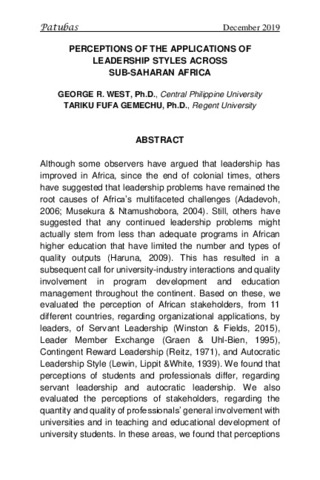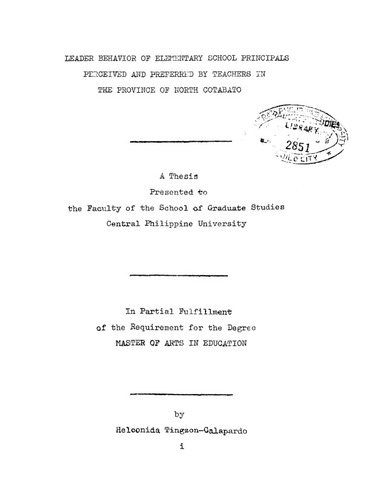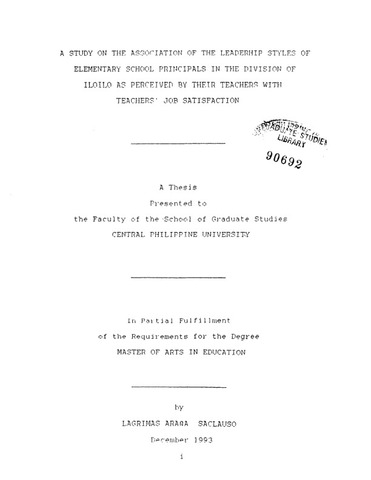Perceptions of the applications of leadership styles across Sub-Saharan Africa
摘要
Although some observers have argued that leadership has improved in Africa, since the end of colonial times, others have suggested that leadership problems have remained the root causes of Africa’s multifaceted challenges (Adadevoh, 2006; Musekura & Ntamushobora, 2004). Still, others have suggested that any continued leadership problems might actually stem from less than adequate programs in African higher education that have limited the number and types of quality outputs (Haruna, 2009). This has resulted in a subsequent call for university-industry interactions and quality involvement in program development and education management throughout the continent. Based on these, we evaluated the perception of African stakeholders, from 11 different countries, regarding organizational applications, by leaders, of Servant Leadership (Winston & Fields, 2015), Leader Member Exchange (Graen & Uhl-Bien, 1995), Contingent Reward Leadership (Reitz, 1971), and Autocratic Leadership Style (Lewin, Lippit &White, 1939). We found that perceptions of students and professionals differ, regarding servant leadership and autocratic leadership. We also evaluated the perceptions of stakeholders, regarding the quantity and quality of professionals’ general involvement with universities and in teaching and educational development of university students. In these areas, we found that perceptions of students and professionals differ, regarding professionals’ general involvement with universities.
描述
Journal article
建议引文
West, G. R., & Gemechu, T. F. (2019). Perceptions of the applications of leadership styles across Sub-Saharan Africa.文件类型
Article國際標準期刊編號
1908-515X主题
关键字
集合
- Patubas [110]
相關項目
顯示由標題,作者,創造者和主題相關的項目。
-
Paul’s leadership style: A model for the 21st century Christians
Lorenzo, Romeo L. (Filamer Christian University, 2011)“You may wonder why of all the topics under the sun I have chosen to write about Paul’s leadership style as a model for the 21st century Christian leaders. Let me share with you the reasons. First, as I read the New ... -
Leader behavior of elementary school principals perceived and preferred by teachers in the province of North Cotabato
Calapardo, Helconida Tingzon (1983)Statement of the Problem This study attempts to measure the Elementary School Principals’ leader behavior as perceived and preferred by the teachers during the school year 1981-1982, in the eleven districts of North ... -
A study of the association of the leadership styles of elementary school principals in the Division of Iloilo as perceived by their teachers with teachers' job satisfaction
Saclauso, Lagrimas Araña (1993)It is the purpose of this study to go into the leadership styles of elementary school principals as seen by themselves and by their teachers. It is hoped that leaders and their subordinates jointly discover ways by which ...





